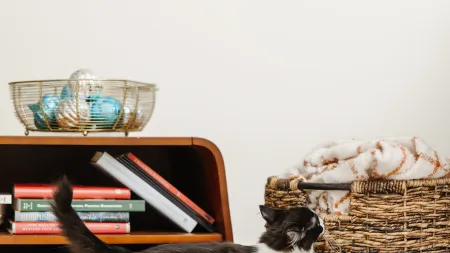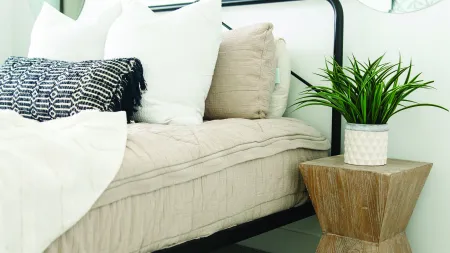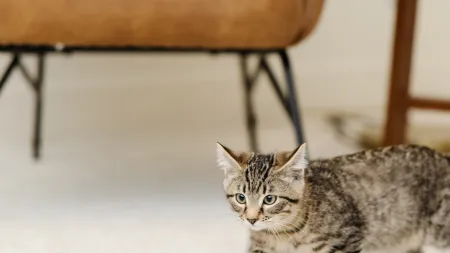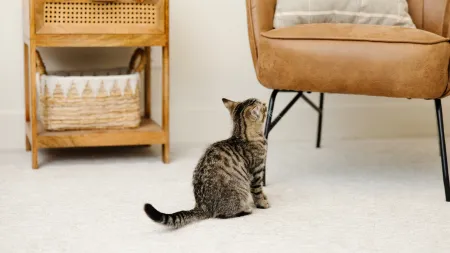How to Get Rid of Black Urine Stains on Hardwood Floors
Pets bring energy and joy to a home, yet accidents can happen. If pet urine isn't cleaned promptly, it can dry and darken over time, leading to discoloration on hardwood floors.
As a pet owner, knowing how to get rid of black urine stains on hardwood floors could help save it from damage.
To remove dark pet urine stains from hardwood floors, try enzymatic cleaners, wood bleach, sandpaper or steel wool, or hydrogen peroxide. If the stain remains, consider staining the floor to match or covering it with a rug.
Hardwood floors are moisture-sensitive; don't use too much liquid. Use only the recommended hardwood cleaning products and techniques.
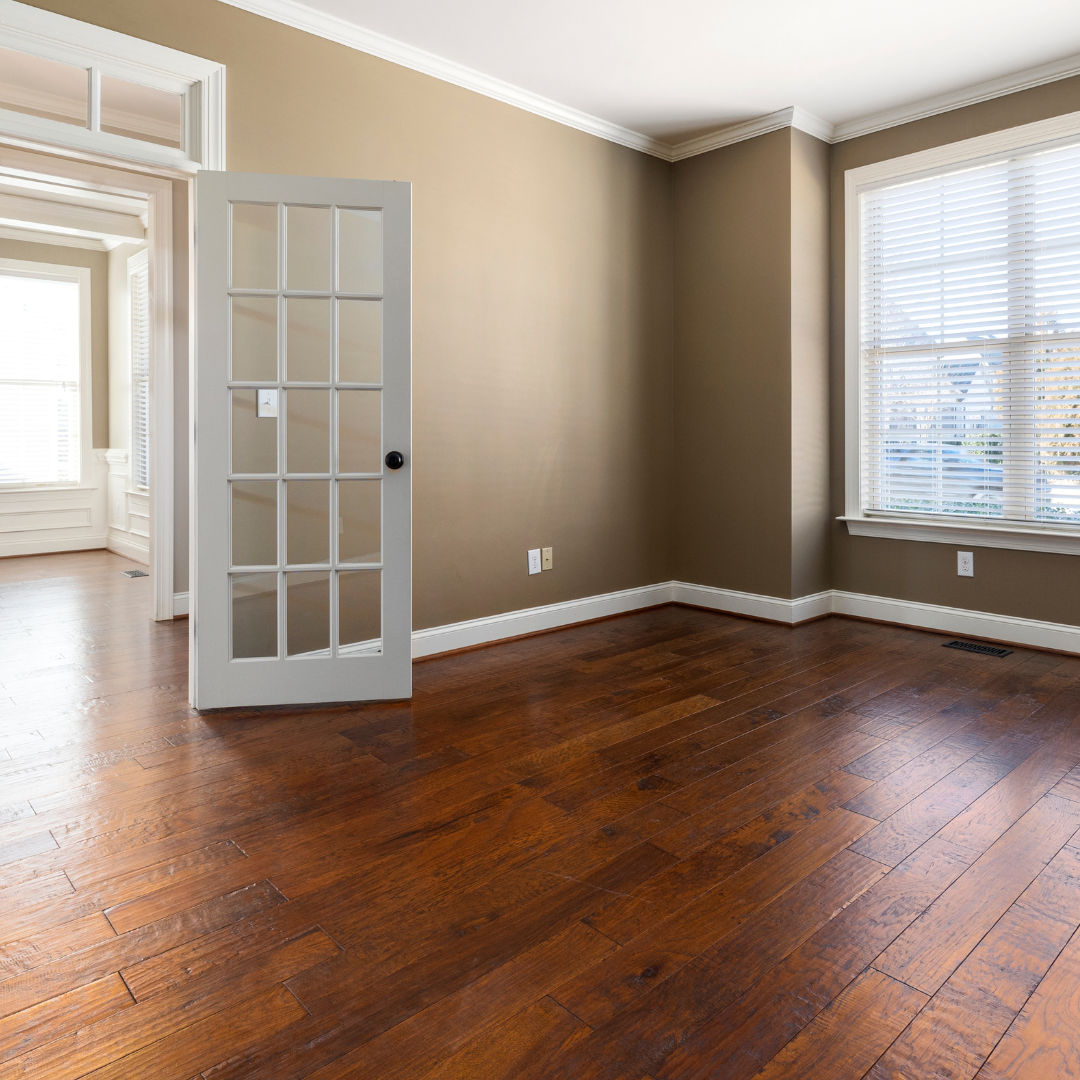
How to Get Rid of Black Urine Stains on Hardwood Floors?
You can use many homemade and commercial cleaning products to remove dark stains from wood floors. Most of these products could have a chemical reaction, so you must be careful when using them.
Heads up: There are cleaning products to avoid on hardwood floors. Always ensure the product you choose is suitable for cleaning the hardwood floor and spot-test it before cleaning the dark stain. Otherwise, massive damage could occur and be more expensive to fix than the black urine pet stains!
Let's look at what takes dark urine stains out of wood floors.
Hydrogen Peroxide
Hydrogen removes black urine stains on hardwood but is also a bleaching agent. Take caution when using it; don't use too much; only use the recommended amount. Thoroughly rinse the area to avoid wood floor discoloration or damage.
Even in small quantities, hydrogen peroxide will still cause a slight discoloration. If your hardwood floor is light, it may be hard to notice the discoloration after using hydrogen peroxide, but for darker wood, it might be easier; hence, you might want to look for another cleaner or use sparingly to avoid serious discoloration.
Avoid a high hydrogen peroxide concentration when cleaning hardwood floors. A low concentration of 3 percent is enough to fix the black urine stains on hardwood floors.
Soak a cloth in hydrogen peroxide and rub the area for light stains. If the stain is stubborn or deeply stained, spray a small amount of hydrogen peroxide directly on the surface, cover it with a paper towel, and then allow 2 to 3 minutes for the reaction to complete. Don't exceed the recommended waiting time; the reaction will continue and could wear the floor.
Once the area begins to lighten, rinse the area thoroughly with water and sprinkle a generous amount of baking soda to absorb excess liquid.
Let the baking soda sit for 1 hour or overnight if you're not using the room, and then vacuum. Repeat the process if the dark stain remains, or contact experts in cleaning wood floors to help.
Sandpaper or Steel Wool
When all else fails, use sandpaper or steel wool to lightly scrub the area to remove the stain. This should be your last option.
This method can remove the stain, not the odor, and only works on surface stains. When pet urine penetrates the floor, using sandpaper or steel wool cannot work. You must also be careful with sandpaper; excessively scrubbing one area could cause a bump!
If the steel wool or sandpaper successfully fixes the black urine stain, but you still notice a lingering odor, use baking soda.
Dampen the area and sprinkle a generous amount of baking soda. Allow it to sit for about an hour or overnight if the odor is strong, and then vacuum.
Remember to reseal the hardwood floor to prevent future urine damage on the hardwood floor.
Spot Stain
Spot staining could also help if all other measures fail or the alternatives are too expensive. Spot staining with matching colors and sealing the surface is a cost-effective solution for repairing dark spots on hardwood floors.
Commercial Solutions
If you're afraid of the risks of using hydrogen peroxide and want a more wood-friendly cleaning solution, use wood cleaning products or enzyme cleaners.
Wood Bleach Products
Wood bleaching lightens dog or cat urine black stains, making the affected area look slightly different from the rest of the floor. The bleach also removes any lingering odor on wooden floors.
When working with wood bleaches, properly ventilate your home and wear gloves because of their chemical composition. Always read the label for instructions on using it and the safety measures to take when working with wood bleach.
Enzyme Cleaners
Oxiclean and other enzyme cleaners break down and remove stubborn black urine stains on wooden floors.
Enzyme cleaners are the best when working with pet stains, even when fixing pet pee on carpets, because they break down the proteins in pets' urine, leaving no traces of stains and odors.
Enzymatic cleaners are wood-friendly; they don't damage it, but always use the recommended amount.
Cover With a Carpet
It's tricky to clean pet pee stains, especially if they've penetrated the floor.
Don't sweat it if you don't have enough budget yet to fix the area or if you tried all methods, including the ones above, but nothing seems to work.
Call it character, and cover the area with carpets for pets!

How Can You Determine if Dark Spots on Hardwood Floors Are from Urine or Mold?
Mold and urine cause dark spots on the hardwood floor. Mold is caused by excessive exposure of hardwood floors to moisture, which causes the floors to darken when they begin to absorb the water/urine, leading to mold growth.
Dog urine stains cause dark spots when it penetrates and reacts with the tannins in wood floors, resulting in dark spots. The same applies to cat pee stains.
It's crucial to distinguish between urine and mold black spots to know what products and procedures fix them.
How to Determine if the Dark Spot is Caused by Mold:
There's a musty smell around the area
There was water damage recently around that area
You notice spores on your wood floor
Besides discoloration, the wooden floor is damaged
How to Identify Black Stains from Pet Urine:
Color: Cat and dog pee will stain the color. Heavy amounts of pet urine will turn a blackish-green color. The stain from cat pee may not make your feet black, but it will discolor your floor.
Odor: Fresh dog and cat urine stains have a potent odor that's hard to ignore.
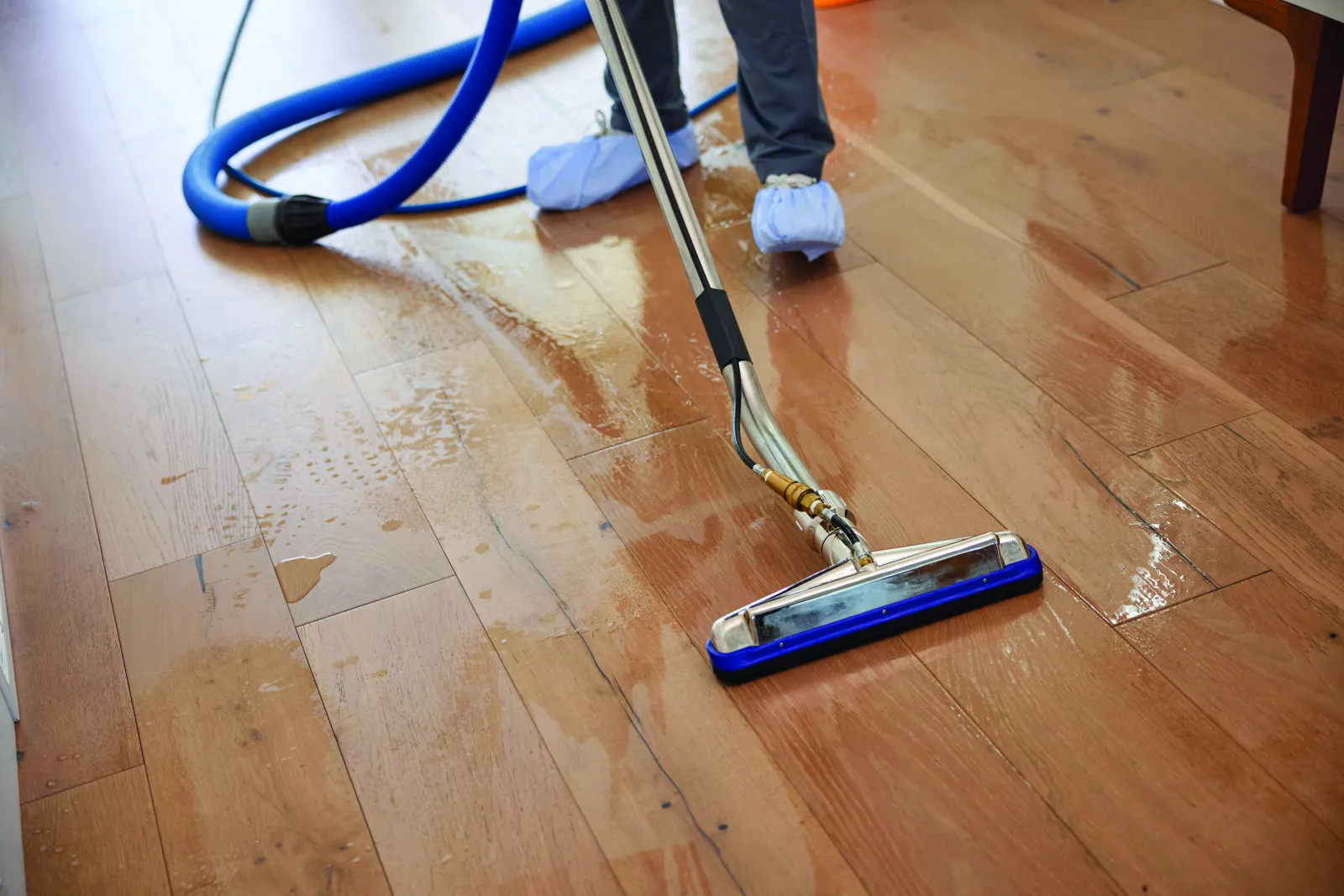
Why Did Wood Floor Turn Dark From Urine?
The wood floor turning black from urine could be due to two reasons:
Not mopped immediately: Not cleaning up urine messes when they happen makes them dry and react with the wood finish, resulting in a dark color. Dry urine stains are among the most challenging to clean; always mop a hardwood floor asap when you notice the mess.
Heavy buildup due to constant peeing: Pets, particularly cats, have a tendency to mark their territory. If your cat urinates on the carpet or hardwood floor and the odor isn't properly cleaned, your cat may start to view that spot as its designated place to pee.
If this goes unnoticed, urine buildup can gradually lead to darkening, a sign of dried uric salt crystals. The accumulation of urine also increases moisture, which can promote mold growth. Over time, this could cause permanent discoloration and damage to your wooden floor.
Are you having trouble fixing the hardwood floor's dark stains? Let Zerorez do the job for you!
Get in touch with us by calling 866-937-6739 or by scheduling the service online.
